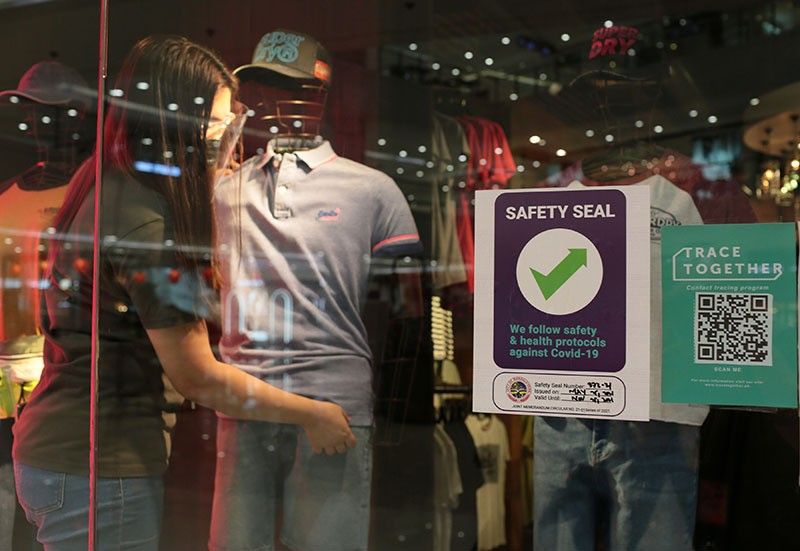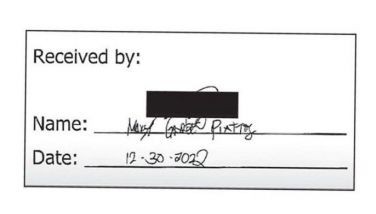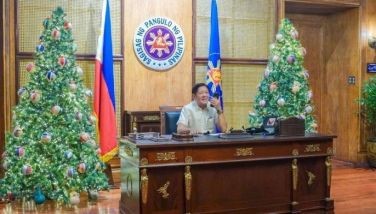Palace: IATF may revisit, update pandemic protocols

MANILA, Philippines — The government may revisit its pandemic protocols, including those related to the mobility of minors, to holding in-person classes, and to travel as the Philippines grapples with the threat of the more infectious Omicron variant, Malacañang said Monday.
Metro Manila, home to more than 12 million people, was placed under the stricter Alert Level 3 starting yesterday until Jan. 15 because of an exponential increase in the number of COVID-19 cases.
The capital region, which used to be under Alert Level 2, is now classified as high risk because of a high risk one-week growth rate and a two-week growth rate and moderate risk average daily attack rate of 5.42 cases per every 100,000 population.
Cabinet Secretary Karlo Nograles — acting presidential spokesman — noted that the COVID-19 protocols were approved at a time when the country had a low vaccination rate and the inoculation program was not yet open to minors.
"We have to discuss it first in the IATF (Inter-Agency Task Force for the Management of Emerging Infectious Diseases) because remember, when these rules were crafted and announced, that was the time when our vaccination rate was still low," Nograles told ABS-CBN News when asked about the protocols for persons below 18 years old.
"But right now, things are different. Right now... we are giving vaccination now to (persons aged) 12 to 18...And then many of our senior citizens have been vaccinated. So, let's wait for the announcement ng IATF," he added.
Under existing Alert Level 3 rules, persons below 18 year of age and those belonging to the vulnerable population shall be allowed access to obtain essential goods and services or for work in permitted industries and offices. Individual outdoor exercises are also permitted for all ages regardless of comorbidities or vaccination status.
Nograles, also the IATF's spokesman, said a technical working group was scheduled to meet Monday to talk about measures related to the pandemic. Another IATF meeting would be held Tuesday to discuss the protocols, Nograles added.
Existing Alert Level 3 protocols also prohibit the conduct of in-person classes for basic education, except those previously approved by the IATF or the Office of the President. Nograles said the pilot face-to-face classes in Metro Manila would be affected by the escalation of the region's status to Alert Level 3.
"We'll have to reassess that again because the exact wording of our resolution for our guidelines is face-to-face for classes for basic education is prohibited except those previously approved by the IATF or the Office of the President," the Palace official said.
"So, if it was previously approved, technically, it is allowed, but again we’ll have to make a reassessment. That's why the IATF technical working group is working today, then we'll have an IATF full meeting tomorrow and then perhaps we’ll have to make a reassessment of basic education," he added.
While in-person classes in elementary and high school are not permitted under Alert Level 3, limited face-to-face classes for higher education are allowed up to 30% indoor capacity for fully vaccinated persons and 50% for outdoor venues.
Nograles said the IATF has to coordinate with local governments to talk about travel protocols, testing, and vaccination efforts.
"I cannot say for certain where our discussions will lead us but certainly, there are a lot of pros and cons that we have to weigh... Before, when we didn’t have the vaccines or we were coming in very slowly and vaccination was not that high, LGUs (local government units) were very strict," Nograles said.
"So we’ll have to really engage with the LGUs again and talk about this whole thing about testing again or perhaps, maybe really ramp up, maybe what we want to talk about really more is ramping up more vaccinations, ramping up vaccination especially in the provinces and the regions with low vaccination rates," he added.
Nograles said the government is also willing to assess the prices of RT-PCR tests if a better technology becomes accessible.
"Maybe we can start assessing again the prices, although we went through that cycle, we went through cycles of putting those caps on the RT-PCR. So maybe, it can be something that we can explore again or the DOH (Department of Health) can explore again," he added.
The IATF previously announced that a technical working group led by the Metropolitan Manila Development Authority and the National Vaccination Operations Center would craft stricter measures for unvaccinated persons.
Some 57.15 million persons in the country have received their first dose while about 44 million others have been fully vaccinated as of January 2. More than 1.8 million individuals have been given their booster shots.
In Metro Manila, the number of persons who got their first dose is about 9.35 million while some 9.59 million individuals have been fully inoculated against COVID-19. Nearly 606,000 people in the capital region have availed of booster shots.
- Latest
- Trending































